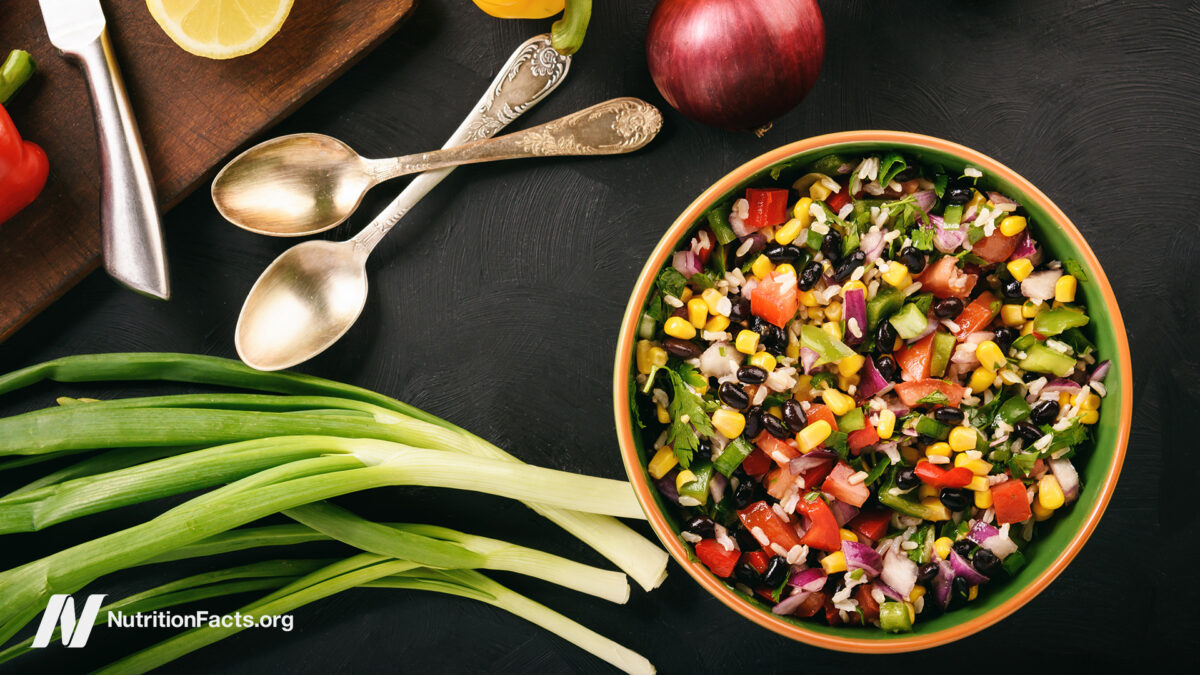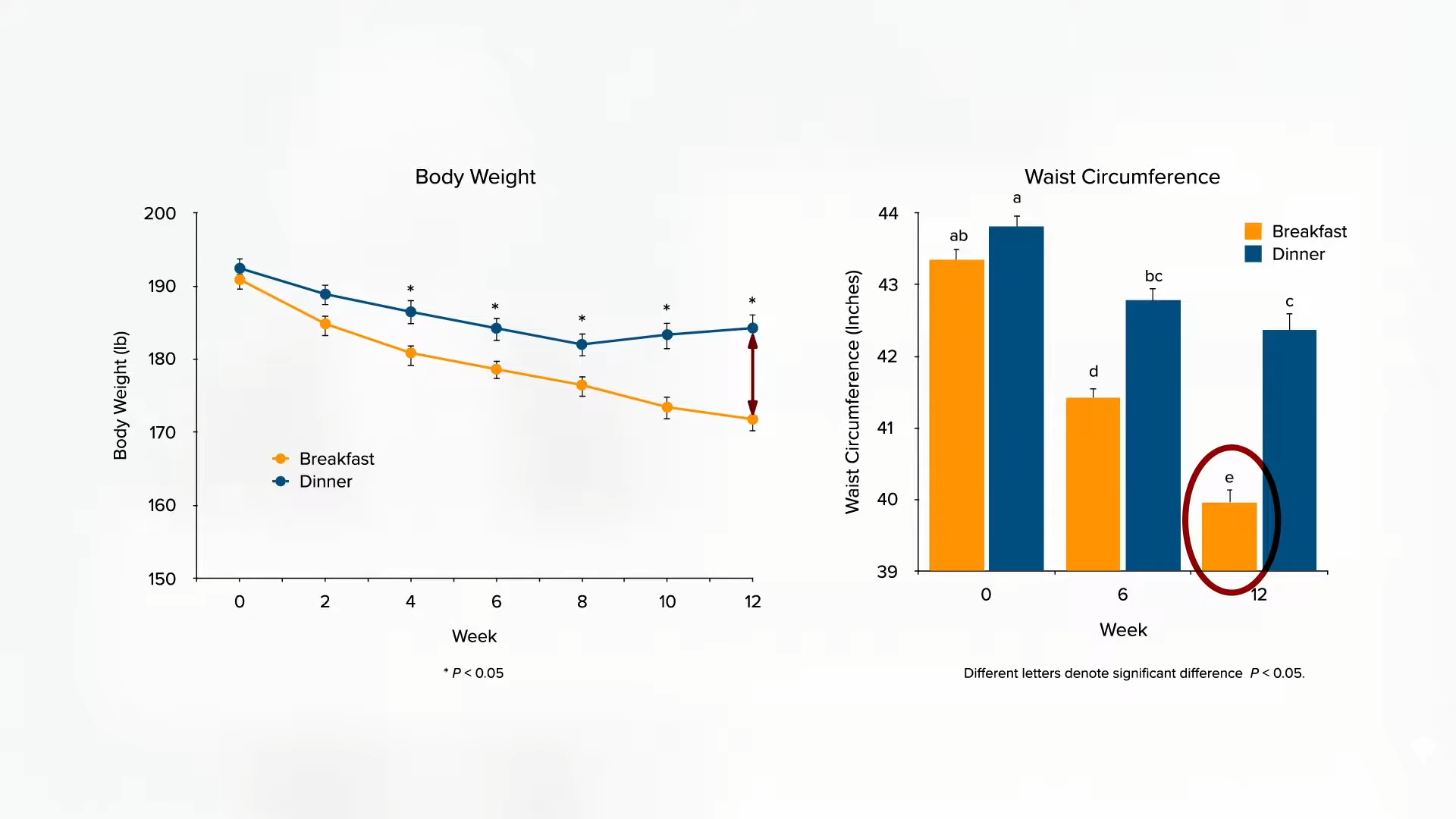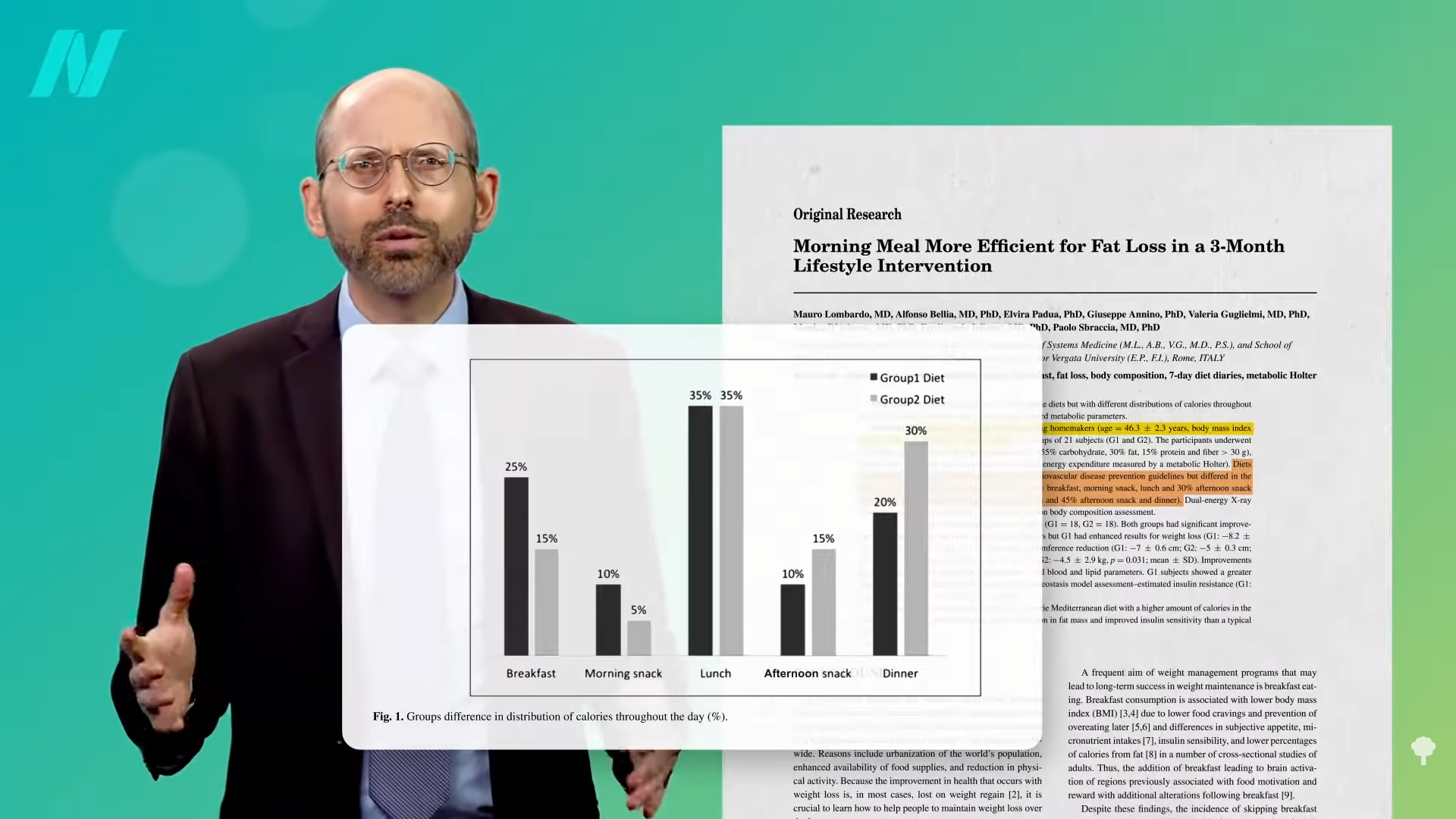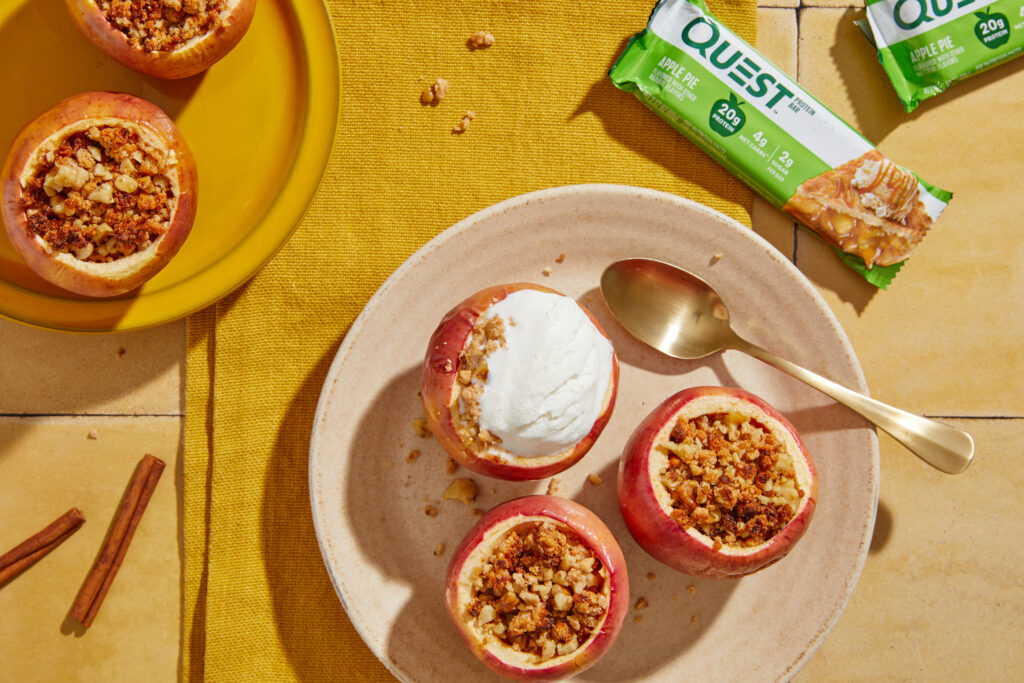
Harness the power of your circadian rhythms to lose weight by making breakfast or lunch your main meal of the day.
In my last chronobiology video, we learned that the calories consumed at breakfast are It is significantly less fattening than the same amount of calories consumed at dinner, as you can see at minute 0:14 of my video. Eat breakfast like a king, lunch like a prince, dinner like a beggarBut who eats only one meal a day?

How about simply changing our daily calorie allocation earlier in the day? Israeli researchers random overweight and obese women into one of two isocaloric groups, meaning each group was given the same amount of total calories. One group received a 700-calorie breakfast, a 500-calorie lunch, and a 200-calorie dinner, and the other group received the opposite: 200 calories for breakfast, 500 for lunch, and 700 for dinner. Since all study participants ate the same amount of calories overall, the king-prince-poor group should have lost the same amount of weight as the poor-prince-king group, right? But not. As you can see in the graph below and at 1:01 in my videothe largest breakfast group lost more than double his weight, in addition to losing about five more centimeters around his waist. At the end of the 12-week study, the king-prince-poor group lost 11 pounds more than the larger dinner group, losing 19 pounds compared to just 8 pounds lost by the poor-prince-king group, despite eat the same amount. of calories. That is the power of chronobiology, the power of our circadian rhythm.

What was the calorie distribution of the king-prince-poor group that received 700 calories for breakfast, 500 for lunch, and 200 for dinner? They consumed 50 percent of their calories at breakfast, 36 percent at lunch, and only 14 percent of their calories at dinner, which is quite skewed. How about 20 percent for dinner? A spread of 50% – 30% – 20%, versus 20% – 30% – 50%?
Again, the largest breakfast group experienced “Dramatically increased” weight loss, a difference of about nine pounds in eight weeks with no significant differences in overall caloric intake or physical activity between the groups, as shown in the graph below and at 1:57 in my video.

Instead of 80 percent of calories consumed at breakfast and lunch, how about 70 percent compared to 55 percent? Researchers random Overweight “housewives” eat 70 percent of their calories at breakfast, morning snack and lunch, leaving 30 percent for snack and dinner, or a more balanced 55 percent from time when they wake up until lunch. In both cases, only a minority of calories were consumed at dinner, as you can see below, and at 2:25 in my video. Was there any difference between eating 70 percent of calories at lunch versus only 55 percent? Yes, those who ate more calories earlier in the day had significantly more weight loss and slimming down.

The researchers concluded: “News about food and nutrition appears almost daily, but the information can sometimes be confusing and contradictory. Clear messages must be proposed to reach the greatest number of people. A clear communication from doctors could be: ‘If you want to lose weight, eat more in the morning than at night.’”
Even just narration It may be helpful for people to eat their main meal at lunch instead of dinner. Despite comparable caloric intakes, participants in a weight loss program randomly assigned to receive advice on making lunch their main meal outperformed those who were asked to make dinner their main meal.
The proverb “Eat “Eat breakfast like a king, lunch like a prince and dinner like a poor man” evidently has another variant: “Eat breakfast yourself, share lunch with a friend and give dinner to your enemy.” I wouldn’t go that far, but there appears to be a metabolic benefit to anticipating the bulk of your calories earlier in the day.
However, the evidence is not completely consistent. A review of dietary pattern studies. disputed whether reducing nighttime eating would facilitate weight loss, citing a study that presented The group that ate the heavy meal in the evening had better results than the group that ate the heavy meal in the morning. Perhaps that was because the breakfast group was given “chocolate, cookies, cake, ice cream, chocolate mousse, or donuts” for breakfast. Thus, chronobiology can be surpassed by a junk food methodology. In general, the that remains more important than when. Calorie time can be used to speed up weight loss, but it is not a substitute for a healthy diet. When he said there was a time for every purpose under heaven, Ecclesiastes probably wasn’t talking about donuts.
When I heard about this, what I wanted to know was as. Why does our body store less food as fat in the morning? I explore the mechanism in my next video, Eat more calories in the morning than at night.
This is the fifth video in an 11-part series on chronobiology. If you missed the first four, check out the related posts below.







